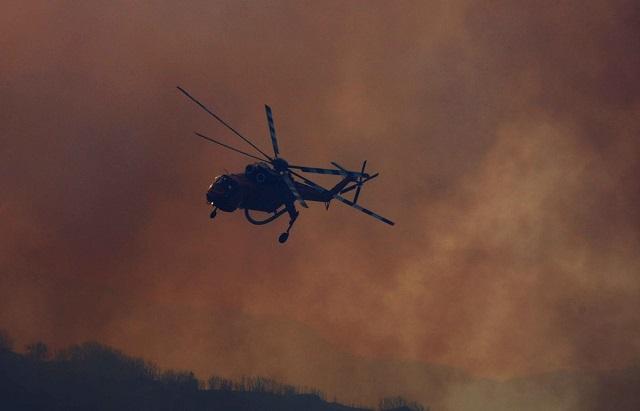
The beat
Privacy concerns in Toronto gunshot-detector purchase
The Canadian Civil Liberties Association (CCLA) has asked the Toronto city council to delay voting on a funding proposal for ShotSpotter technology, an investment unanimously approved by the Toronto police board. The equipment detects and timestamps gunshots through acoustic sensors mounted in public places. In an open letter, the CCLA expressed concern about constitutional privacy issues and said the technology may disproportionately affect Canada’s marginalised communities. If the purchase is approved, Toronto will be the first Canadian city with ShotSpotter. It’s already being used in multiple US cities, where some reports of quicker response times have been tempered by high numbers of false alarms.
Cartels flex muscles in Mexico
A new criminal group challenging an established cartel is thought to be the reason behind increasing violence in the Mexican city of Guadalajara. Nueva Plaza Cartel is in a territorial dispute with Jalisco Cartel New Generation (CJNG) over areas in the city’s west and southeast. Nueva Plaza Cartel is a splinter group that formed in 2017 when a close confidant of the CJNG’s leader defected. Not much is known yet about Nueva Plaza Cartel but, according to InSight Crime, it may be receiving support from CJNG’s long-time enemy, the Sinaloa Cartel.
CT scan
UK counterterror tools leaked through cloud-based software
A poor security configuration in cloud-based Trello software exposed some of the UK’s highly confidential counterterrorism tools. Documents—including personal information and meeting schedules of public servants in the Cabinet Office and Home Office—were publicly accessible through a keyword search in Google for up to four years. The breach potentially allowed hackers to access details of a counterterror reporting tool and information that could be used to track communication between government employees. Senior public servants also inadvertently revealed their personal phone numbers and email addresses when they failed to use the Trello privacy settings correctly.
Countering terror up high
The Chinese People’s Armed Police Force is taking its exercises to daring heights, carrying out extreme counterterrorism drills 4,000 metres above sea level in Tibet. According to the Global Times, training on and in highways, cliffs, caves and jungles will help soldiers safeguard China’s border and flush out terrorist groups. Conducting the drills in the restive region of Tibet also helps them adapt to the environment and improve their capacity to survive in harsh conditions, including freezing temperatures and high altitudes.
Checkpoint
India’s anti-trafficking bill: a step forward or sideways?
The Indian government has drafted its first comprehensive bill tackling domestic and international human trafficking. UN special rapporteurs have criticised the plan, saying some provisions are ‘over-broad and vague,’ and that it overlooks key human rights standards. Analysts voiced similar concerns that a prosecution-driven model can’t curb the crisis. Nobel laureate Kailash Satyarthi welcomed the efforts, but underlined the need for further action.
Textbook tussle
Japan has brought forward its deadline for publishing a controversial textbook from 2022 to 2019, potentially aggravating the Diaoyu/Diaoyutai/Senkaku Island dispute. As part of its national territory education policy, the government intends to distribute high-school textbooks illustrating Japan’s historical right to the island chain. China and Taiwan have issued statements criticising Japan’s ‘illegal occupation’.
Blow for Western Sahara independence movement
Morocco and the EU have signed a contentious new fishing agreement which includes Western Sahara. The European Court of Justice previously ruled the agreement valid, but only if it excluded the disputed region, which Morocco has occupied since the 1970s. Despite the ruling, European negotiators were given approval to pursue an agreement which included Western Sahara, a ‘red line’ for talks with the Moroccan government. Tacit EU support of Morocco’s claim diminishes independence movement Polisario’s long-running campaign for Western Saharan statehood.
First responder
Wildfires and heatwave causing havoc
Greece and Sweden are grappling with their worst wildfires in more than half a century. France, Germany, Denmark and Poland, among others, have responded to Sweden’s call for help, providing firefighters, aircraft and equipment. Australia has offered to provide assistance to Greece if Athens requests it. Heatwaves are currently gripping the UK, Ireland, Canada, Japan and Algeria, which experts attribute to the severity of human-induced climate change. See photos of the Sweden wildfires here.
Dam collapse in Laos
Hundreds of people have been reported to be dead or missing after the Xenamnoy dam wall collapsed in southern Laos, causing millions of tonnes of water to flood into the adjacent villages. A massive rescue effort by state agencies and volunteer groups is underway.
Typhoon trouble in China
The Chinese Meteorological Department activated a level 3 emergency response as Typhoon Ampil hit parts of China, including Shanghai. Nearly 220,000 people were evacuated from the coastal areas in eastern China and a further 190,000 were moved from the coastal areas of Shanghai.
Given the scale of these natural disasters, ASPI visiting fellow Robert Glasser’s advice on the need to embed climate change in disaster risk reduction strategies is particularly timely.